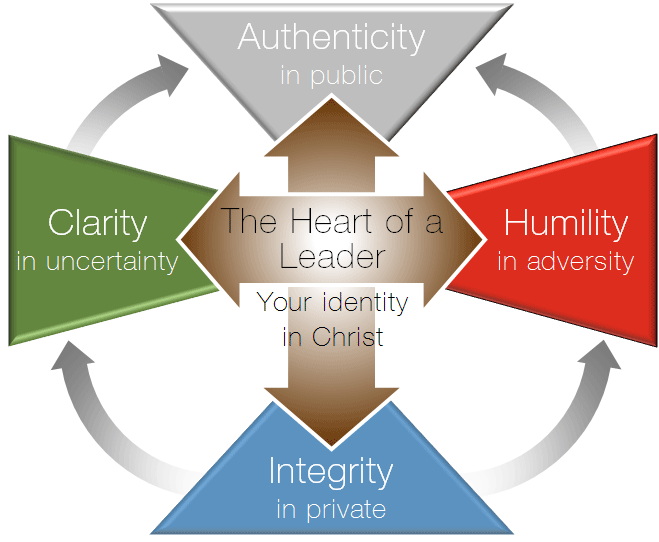
LIFESIGNS FOR
TM
LEADERS
"If anyone wishes to come after Me, he must deny himself, and take up his cross and follow Me."
How is spiritual leadership different?
Secular Leaders...
Spiritual Leaders...
influence others with their
ability
influence others with their
identity
conceal and avoid their
weaknesses
reveal and embrace their
weaknesses
focus on their
skills and strategies
also focus on their
character and calling
see adversity as an
obstacle to growth
see adversity as an
opportunity to grow
strive to become more
strategic
also strive to become more
authentic
Why does it matter?
In secular leadership, you’re focused on your leadership skills and strategy, as well as your preferred style and personality. While these qualities are important, spiritual leadership goes much deeper.
Your influence as a spiritual leader also depends on the condition of your heart, the content of your character, and the clarity of your calling. Spiritual leadership is ultimately about how Jesus lives in you, so He can lead through you.
LifeSigns for Leaders is not only focused on what you DO as a leader, in public. It will lead you into a deeper understanding of who you ARE as a leader, in Christ.

"Watch over your heart with all diligence,
for everything you do flows from it."
– Proverbs 4:23


Essential #1 – Intimacy with Christ
It all starts with your heart – not your ability. When God picked a new king for Israel, He told Samuel, “Do not look at his appearance or at the height of his stature...for God sees not as man sees, for man looks at the outward appearance, but the Lord looks at the heart.”
Your influence as a spiritual leader depends on more than your aptitudes and abilities. Your influence grows as you discover how Jesus lives IN you, so He can lead THROUGH you.




What are the Five Essentials of spiritual leadership?
Essential #2 – Integrity in Private
You may be tempted to hide your wounds and weaknesses, assuming they are liabilities. But the apostle Paul did exactly the opposite. Wounded by a thorn in the flesh, Paul declared:
"I will boast all the more gladly about my weaknesses, so that Christ’s power may rest on me. That is why, for Christ’s sake, I delight in weaknesses, in insults, in hardships, in persecutions, in difficulties. For when I am weak, then I am strong."
Essential #3 – Clarity in Uncertainty
In three tumultuous years, Jesus recruited and trained a group of leaders who would change the world.
His purpose was clear: "For the Son of Man came to seek and to save the lost."
His plan was simple: "I do exactly what my Father has commanded me."
His process was revolutionary: "The Son of Man did not come to be served, but to serve, and to give his life as a ransom for many."
Essential #4 – Humility in Adversity
As a spiritual leader, at some point you'll face five different kinds of adversity: relational, emotional, cultural, physical, and spiritual. How do you respond?
God offers a surprising path to victory: Humility. "All of you, clothe yourselves with humility toward one another, for God is opposed to the proud, but gives grace to the humble."
Essential #5 – Authenticity in Public
How could Paul enter a city he’d never visited, connect with people he’d never met, share a message they’d never heard – and in a few short months leave behind a thriving body of believers?
Paul’s authenticity flowed from his identity in Christ. He wrote, "My message and my preaching were not with wise and persuasive words, but with a demonstration of the Spirit’s power, so that your faith might not rest on human wisdom, but on God’s power."
What's included in LifeSigns for Leaders?

Access code for on-line
assessment



